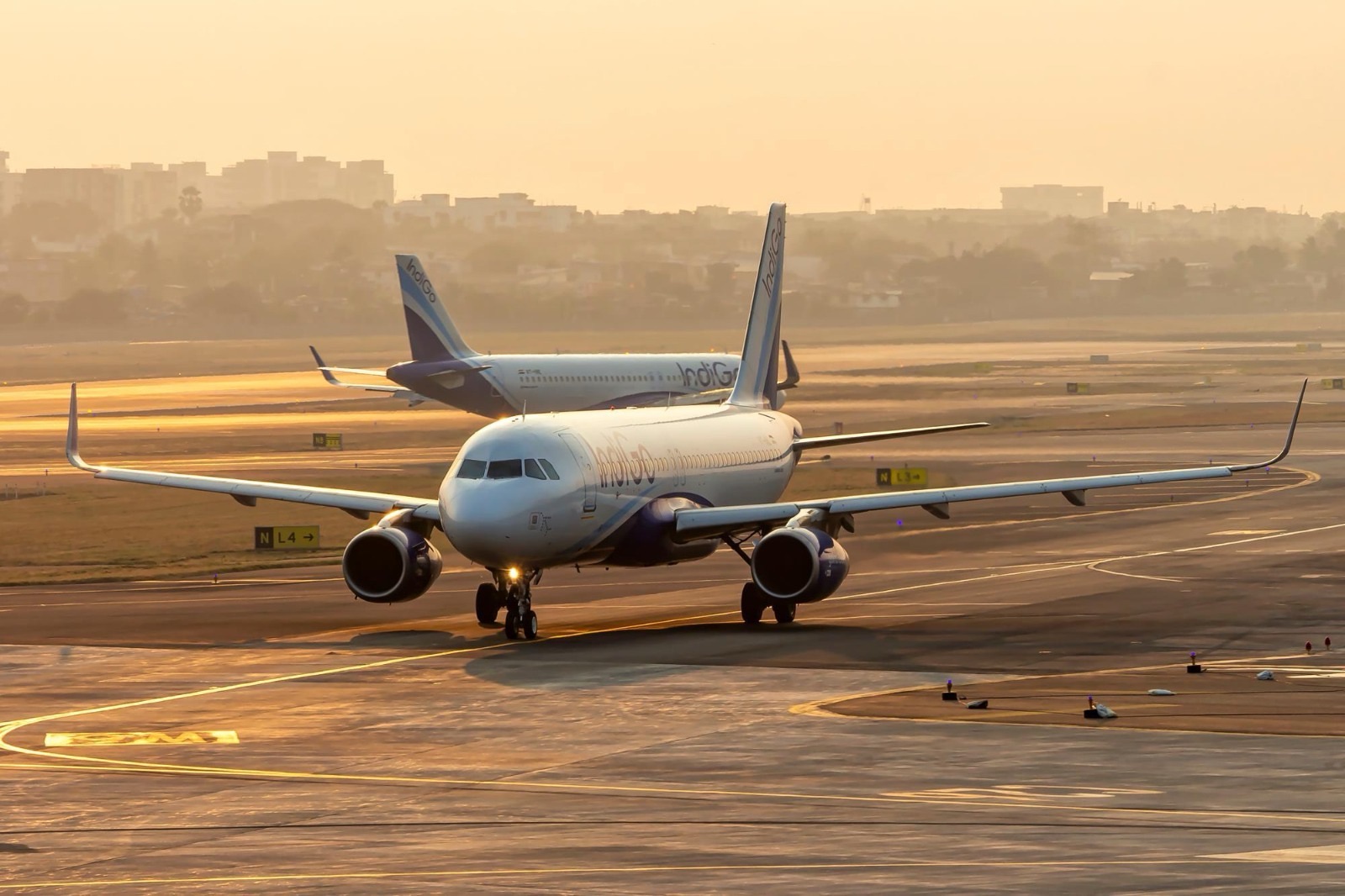Industry experts suggest that Indian airlines could halt services to certain destinations where it becomes operationally or financially impractical to conduct flights that bypass Pakistani airspace.
With Pakistan imposing a closure on its airspace for Indian airlines starting Thursday evening, more than 800 flights each week are expected to face disruptions due to extended flight durations, heightened fuel consumption, and various complexities associated with crew and flight scheduling, all of which will elevate operational expenses. The initial repercussions are already apparent, as flights from North India to West Asia, the Caucasus, Europe, the UK, and the eastern part of North America are altering their usual routes, resulting in travel times that could increase by 15 minutes to several hours, depending on the distance and destination specifics.
In the meantime, Indian carriers are striving to modify their timetables to accommodate the restrictions on Pakistani airspace. On Friday, IndiGo declared the suspension of its daily services from Delhi to Almaty and Tashkent in Central Asia, effective from April 27 and April 28 until “at least” May 7.

The airline explained that due to the airspace limitations imposed by Pakistan and the restricted rerouting possibilities, both Central Asian cities have now fallen outside the operational capabilities of its current fleet of narrow-body aircraft. IndiGo further noted that the closure of Pakistani airspace would influence 50 of its international routes, necessitating possible schedule adjustments.
International Services
All prominent Indian airlines conduct international flights to destinations west of the country, with many of these routes historically traversing Pakistani airspace. Air India operates services to West Asia, Europe, the UK, and North America, while IndiGo serves West Asia, Turkey, the Caucasus, and Central Asia. Additionally, Air India Express, Akasa Air, and SpiceJet provide westward international flights to various locations in West Asia.

Data from Cirium, an aviation analytics firm, reveals that nearly 400 weekly international departures heading westward from North Indian airports—Delhi, Amritsar, Jaipur, and Lucknow—were regularly flying over Pakistan. Considering that all these flights have return segments, the aggregate number of affected flights rises to approximately 800 from these airports. Among these, around 640 flights originate from or arrive at India’s largest airport—Delhi’s Indira Gandhi International Airport—which is likely to be the most impacted by Pakistan’s decision. Furthermore, a limited number of ultra-long-haul flights from other Indian cities, such as Mumbai, are also being affected as their flight paths previously traversed Pakistani airspace.

Technical Stops
Indeed, flight tracking data indicates that several of Air India’s ultra-long-haul flights to and from North America were forced to make technical stops—planned pauses for refueling or crew changes—at European airports like Copenhagen and Vienna on Friday, disrupting what would normally be non-stop journeys.
The previous instance when Pakistan shut down its airspace for an extended duration—back in 2019 after the Indian Air Force conducted airstrikes in Balakot—resulted in Air India frequently having to make technical stops on its flights to North America. Air India has yet to provide any updates on whether such stops on its ultra-long-haul flights will now become a standard practice.

These are still early days, and airlines are actively planning their schedules to adapt to this new situation. Industry insiders indicate that while it remains premature to evaluate the overall impact, the expenses for airlines are expected to increase, which could lead to elevated airfares for travelers. Furthermore, airlines from other nations will benefit from cost and time efficiencies over Indian carriers, as the Pakistani airspace remains accessible to them.
Operational impact
All of this is compelling Indian airlines to modify their schedules, and it may even result in the suspension of flights to certain destinations where operating routes that bypass Pakistani airspace could be operationally or financially impractical, such as IndiGo’s flights to Almaty and Tashkent.
As per airline sources, flight schedules are currently under review, and carriers may soon announce adjustments to their timetables and networks to ensure clarity and stability for passengers. Indian airlines have not yet commented on the potential financial repercussions of Pakistan’s decision, but a more comprehensive understanding of the impact—both financial and operational—is likely to develop in the coming days.

2019 Airspace Closure
When Pakistan prohibited its airspace for more than four months in 2019, it is estimated that Indian airlines incurred losses of approximately Rs 700 crore due to increased fuel costs and operational challenges arising from the longer routes their flights had to take. At that time, Air India was the most significantly impacted Indian carrier, as it conducted more westward international flights than its competitors. Additionally, it remains the sole Indian airline that operates long-haul and ultra-long-haul flights to Europe and North America.
Since then, other Indian airlines—especially IndiGo—have broadened their international networks to encompass various destinations that can be serviced by their existing fleets, primarily made up of narrow-body jets. Currently, IndiGo is the only Indian airline that serves destinations in Central Asia, the Caucasus, and Turkey.
Conclusion
Up to this point, Indian airlines have held back from addressing the possible financial implications. However, sources indicate that carriers are assessing the situation and working on modifying their flight paths. Flights departing from cities such as Delhi, Lucknow, and Amritsar may now be redirected via Gujarat or Maharashtra before heading westward.
In the upcoming days, the complete financial and operational consequences are expected to be more clearly defined. Major Indian carriers, including Air India, IndiGo, Air India Express, Akasa Air, and SpiceJet, operate international flights to a variety of Western destinations, many of which routinely traverse Pakistani airspace.
For all aviation-related guidance (DGCA ground classes, pilot training, cabin crew training)
Contact us https://contrail.in/
phone numbers +91 78457 69399


